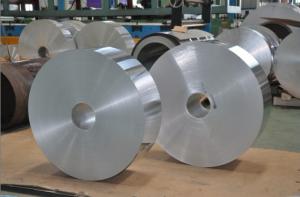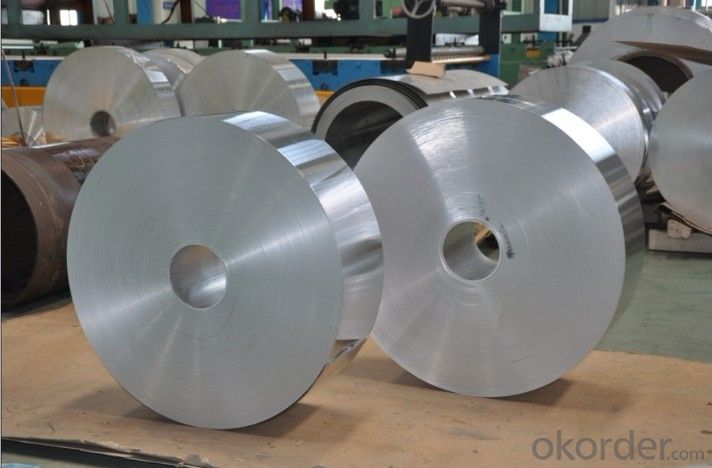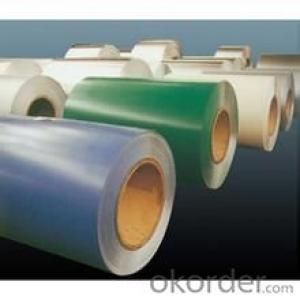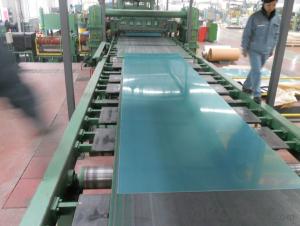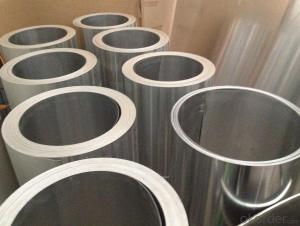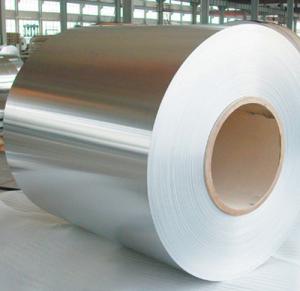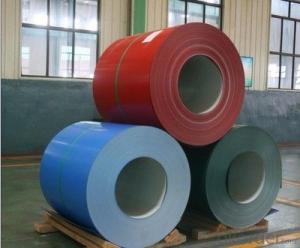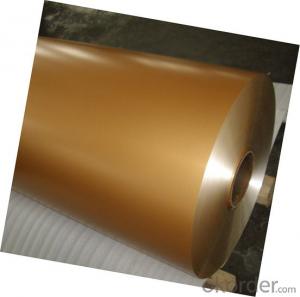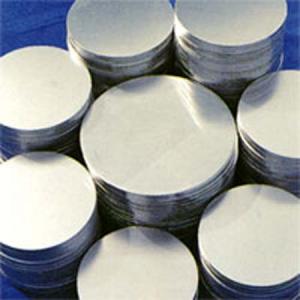Custom Mill Finished Aluminum Coil and Sheet from China
- Loading Port:
- Shanghai
- Payment Terms:
- TT or LC
- Min Order Qty:
- 5 m.t.
- Supply Capability:
- 9000 m.t./month
OKorder Service Pledge
OKorder Financial Service
You Might Also Like
Specifications
1)0.02mm-200mm aluminum sheet,coil,foil,circle
2)mill finish mirror finish
3)process: CC&DC
4)paper interleave & PVC Film
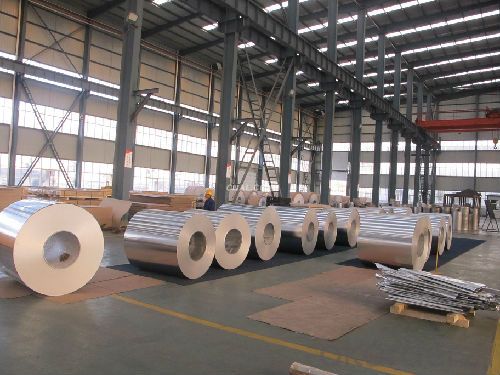
product | thickness | alloy | temper | |
aluminium sheet,coil,foil, circle,strip | 0.16-200mm | 1070 1060 1050 1145 1235 1100 1200 3003 8011 3005 5005 3105 | H18 H26 H14 H24 H22 O | |
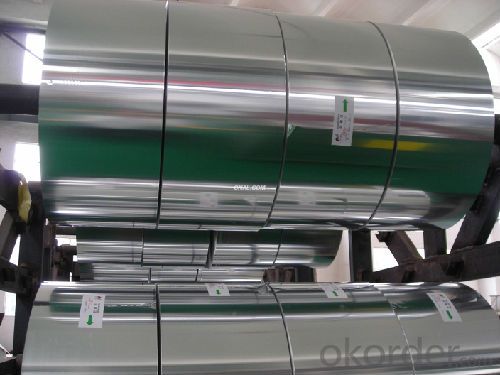
Our Services
Why Chose us?
Factory | We are a factory manufacturing aluminum coil, sheets, foil. strip, circle, ACP and coated coil. We have best production capability, best quality control, best Service. |
24-hours working | Contact line is 24-hours available for your any question before sales and after sales. |
Flexible MOQ | Any quantity is available if we have your specification in stock. |
Shipping company | Introduce to you our good partner--experienced shipping company with competitive price |
OEM service: | Accept your own design |
Strict Quality Controlling | CE/ISO/IAF/SGS listed |
Trade assurance service | We are Alibaba Assessed years Gold Supplier and suppport trade assurance service. |
Free Sample | We supply sample for free. |
Shipping company | Introduce you our good partner--experienced shipping company with competitive price |
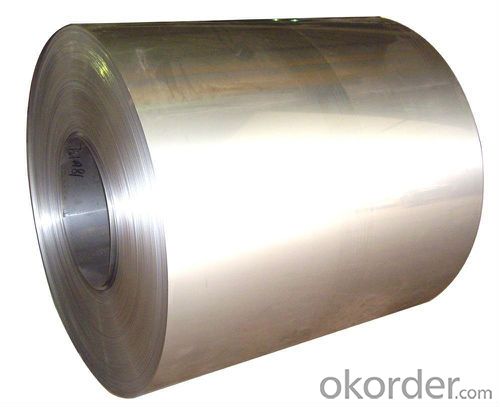
- Q: What are the common surface treatments for aluminum coils in the automotive industry?
- In the automotive industry, aluminum coils undergo various surface treatments to enhance their performance and appearance. Some common surface treatments for aluminum coils in the automotive industry include: 1. Anodizing: Anodizing is a popular surface treatment for aluminum coils as it creates a protective oxide layer on the surface. This process involves immersing the coils in an electrolytic solution and passing an electric current through it. Anodizing provides corrosion resistance, improves durability, and allows for the application of dyes or paints. 2. Painting: Aluminum coils can be painted to provide an aesthetically pleasing appearance and protection against environmental factors. The coils are coated with a layer of paint, which can be solvent-based or powder-coated. Painting not only enhances the visual appeal but also adds a layer of protection against scratches and UV radiation. 3. Cladding: Cladding involves bonding a layer of aluminum alloy with different properties onto the surface of the coil. This treatment is commonly used to improve the strength, thermal conductivity, or corrosion resistance of the aluminum coil. Cladding can be done through various methods, such as hot rolling, cold rolling, or explosive bonding. 4. Clear Coating: Clear coating is often applied to aluminum coils to provide a transparent protective layer. This coating helps prevent corrosion, oxidation, and discoloration, while also preserving the natural metallic appearance of the aluminum coil. 5. Polishing and Buffing: Polishing and buffing are surface treatments that aim to enhance the surface smoothness and shine of aluminum coils. These treatments involve mechanically grinding or polishing the surface to remove imperfections, scratches, and oxidation. Polishing and buffing are commonly used for decorative purposes in high-end automotive applications. These are just a few of the common surface treatments for aluminum coils in the automotive industry. The choice of treatment depends on factors such as the desired appearance, performance requirements, and environmental conditions the coils will be exposed to.
- Q: Are aluminum coils more cost-effective compared to other materials like copper?
- Yes, aluminum coils are generally more cost-effective compared to copper coils. Aluminum is cheaper and more abundant than copper, which makes it a more affordable option for various applications. Additionally, aluminum coils require less maintenance and have a longer lifespan, reducing overall costs in the long run.
- Q: What’s the loss rate per kg when processing aluminum coil to aluminum sheet?
- 6.5kg/piece
- Q: What are the potential challenges in recycling aluminum coils?
- Some potential challenges in recycling aluminum coils include the need for proper sorting and separation of different alloys, the removal of any non-aluminum components or contaminants, and the energy-intensive process of melting and reforming the coils. Additionally, transportation and logistics can pose challenges due to the bulkiness and weight of the coils.
- Q: What are the insulation options available for aluminum coils?
- There are several insulation options available for aluminum coils, depending on the specific requirements and applications. Some common insulation options include: 1. Foam Insulation: Foam insulation is a popular choice for aluminum coils as it provides excellent thermal insulation properties. It is available in various forms, such as rigid foam boards or flexible foam sheets, and can be easily cut and fitted around the coils. 2. Fiberglass Insulation: Fiberglass insulation is another commonly used option for aluminum coil insulation. It consists of thin glass fibers that are woven together to create a blanket-like material. Fiberglass insulation is lightweight, easy to install, and offers good thermal and acoustic insulation. 3. Mineral Wool Insulation: Mineral wool insulation is made from natural or synthetic minerals, such as rock or slag, that are melted and spun into fine fibers. It is known for its excellent fire-resistance properties and provides effective thermal insulation for aluminum coils. 4. Reflective Insulation: Reflective insulation is designed to reflect radiant heat away from the aluminum coils. It typically consists of a layer of aluminum foil laminated to a layer of fiberglass or plastic bubble wrap. Reflective insulation is particularly effective in warmer climates where reducing heat gain is a priority. 5. Vapor Barrier Insulation: Vapor barrier insulation is used to prevent the transfer of moisture through the insulation material. It is often applied as a coating or film over the insulation to create a barrier against water vapor, reducing the risk of condensation buildup on the aluminum coils. It is important to consider factors such as thermal conductivity, fire resistance, moisture resistance, and installation requirements when selecting the appropriate insulation option for aluminum coils. Consulting with a professional or referring to manufacturer guidelines can help in determining the most suitable insulation option for specific coil applications.
- Q: Are aluminum coils suitable for low-maintenance applications?
- Indeed, low-maintenance applications are well-suited for the use of aluminum coils. Renowned for its strength and ability to resist corrosion, aluminum proves to be an exceptional selection for applications that demand minimal upkeep. Unlike alternative materials like steel, aluminum coils remain free from rust and do not necessitate regular painting to preserve their aesthetic appeal. Furthermore, the lightweight nature of aluminum facilitates effortless installation and handling, particularly in low-maintenance scenarios where frequent maintenance may prove impractical or undesirable. Ultimately, aluminum coils serve as a dependable and low-maintenance solution for a range of applications.
- Q: This question asks for methods to prevent rusting on aluminum coils during storage and transportation.
- <p>To prevent rusting on aluminum coils during storage and transportation, ensure that the coils are clean and dry before storage. Use a protective coating or wrapping to shield them from moisture and contaminants. Store the coils in a cool, dry place away from direct sunlight and corrosive substances. Avoid stacking them where they may come into contact with acidic materials. During transportation, secure the coils properly to prevent movement that could lead to scratches or damage. Use moisture-resistant covers to protect them from the elements. Regularly inspect the coils for signs of corrosion and address any issues promptly.</p>
- Q: This is for handling aluminum
- Aluminum as a solid is very safe; although non-nutritious (your body does not require it), its accumulation in tissues is apparently not directly harmful. Individuals who work years of their lives in handling aluminum have no higher incidence of Alzheimer's disease than those that do not. As a powder- particularly very fine powders- aluminum is extremely hazardous with respect to its combustibility, and is used in fireworks (sparklers, for example). When it burns, it is extremely hot, and extinguishing it should not be attempted without training and the correct tools- usually salt or Purple K extinguishing agent. However, it burns so quickly that it will usually be out before attempts can be made.
- Q: This question asks for precautions that should be taken when handling aluminum coils to ensure safety.
- <p>When handling aluminum coil, it's crucial to follow safety measures to prevent accidents and injuries. Always wear appropriate personal protective equipment (PPE), including gloves, safety glasses, and closed-toe shoes. Ensure that the work area is well-lit and free from clutter to avoid trips and falls. Use lifting equipment, such as cranes or forklifts, for heavy coils and never attempt to lift them manually. Keep the coils dry to prevent corrosion and ensure they are stored properly on wooden pallets or racks to prevent damage. Be aware of the risk of aluminum dust, which can be a fire hazard, and ensure proper ventilation is in place. Regularly inspect the coil for any sharp edges or damage that could cause injury. Always follow the manufacturer's guidelines and adhere to local safety regulations.</p>
- Q: How do aluminum coils perform in high-pressure applications?
- Due to their inherent strength and durability, aluminum coils are generally well-suited for high-pressure applications. The force in a high-pressure environment necessitates materials that can endure it and maintain their structural integrity without bending or failing. Aluminum coils are renowned for their exceptional tensile strength, enabling them to handle high-pressure conditions without collapsing or buckling. Furthermore, aluminum exhibits a high resistance to corrosion, making it an ideal choice for applications where exposure to moisture or harsh chemicals is a concern. This corrosion resistance guarantees that the coils will not deteriorate or weaken over time, even under high-pressure circumstances. Additionally, aluminum coils possess excellent thermal conductivity, which allows them to efficiently transfer heat away from the high-pressure environment. This prevents overheating and maintains stable operating conditions. Moreover, the thermal conductivity of aluminum aids in rapid heat dissipation, further enhancing the overall performance of the coils in high-pressure applications. Moreover, when compared to other metals, aluminum coils are lightweight, making them easier to handle and install in high-pressure systems. The lightweight nature of aluminum also reduces the overall weight of the system, which can have advantages in terms of energy consumption and transportation costs. However, it is important to note that the specific performance of aluminum coils in high-pressure applications may vary depending on the grade and thickness of the aluminum used. Hence, selecting the appropriate aluminum alloy and gauge based on the specific requirements of the application is crucial to ensure optimal performance and longevity.
Send your message to us
Custom Mill Finished Aluminum Coil and Sheet from China
- Loading Port:
- Shanghai
- Payment Terms:
- TT or LC
- Min Order Qty:
- 5 m.t.
- Supply Capability:
- 9000 m.t./month
OKorder Service Pledge
OKorder Financial Service
Similar products
Hot products
Hot Searches
Related keywords
